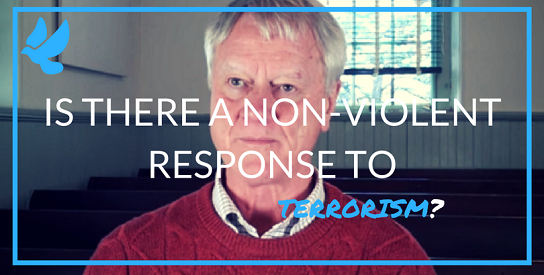The idea of responding to terrorist activities with non-violence seems paradoxical. However, as activist George Lakey—a professor of Peace and Conflict Studies at Swarthmore College, and the co-founder of Training for Change and the Earth Quaker Action Group—proposes, perhaps what we need is a fundamental paradigm shift in how we respond to terrorism. Perhaps what we need is a grounded understanding of the causes of terrorism in order to more holistically inform our responses to terrorism. In his courses and in his writings, Lakey explores eight non-military strategies that have demonstrated efficacy in reducing the threat of terror in real world contexts. These strategies are based on an understanding of the root causes of terrorism—such as economic injustice and oppression, cultural marginalization, the provocation of international military presence, and unaddressed traumas. Specifically, Lakey’s strategies include: developing economic opportunities, creating inclusive societies, building civilian peacekeeping capacity, supporting peaceful expression of civil grievances, providing healing and cultivating resilience, reimagining international military policy, and negotiating.
Importantly, Lakey highlights the synergies among the techniques, and the way that “the whole becomes more than the sum of its parts” when these different strategies are allowed to work together and complement one another in support of peace.
While the US Pentagon and its anti-terrorism experts expressed interest in Lakey’s approaches, they acknowledged that the current structure of our government’s decision making hierarchy makes comprehensive approaches harder to propose and pursue, despite the evidence-based foundation of Lakey’s approaches.
So where does that leave us? Lakey speaks to the bottom-up power of civil society to own and practice many of the strategies for non-violent responses to terrorism. Even in the restrictive context of our government’s bureaucracy, citizens have the power to: practice non-violent protest, embrace the value of voicing opposition, support the organization of marginalized voices, promote healing and recovery programs following acts of violence, and engage in activism opposing the US’s international militarism.
To watch George Lakey discuss the strategies and his meeting with the Pentagon, visit: http://quakerspeak.com/nonviolent-response-to-terrorism/ To read more about each of the 8 strategies, visit: http://wagingnonviolence.org/feature/8-ways-defend-terror-nonviolently/
